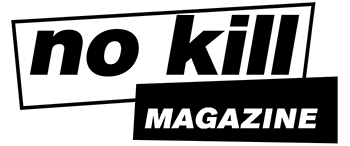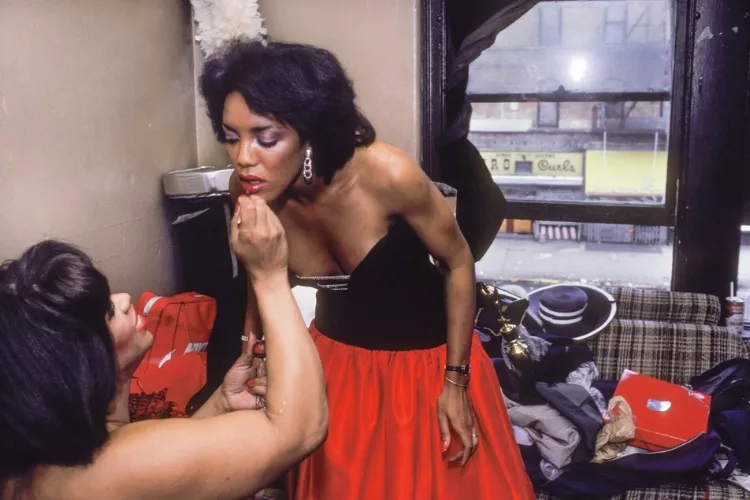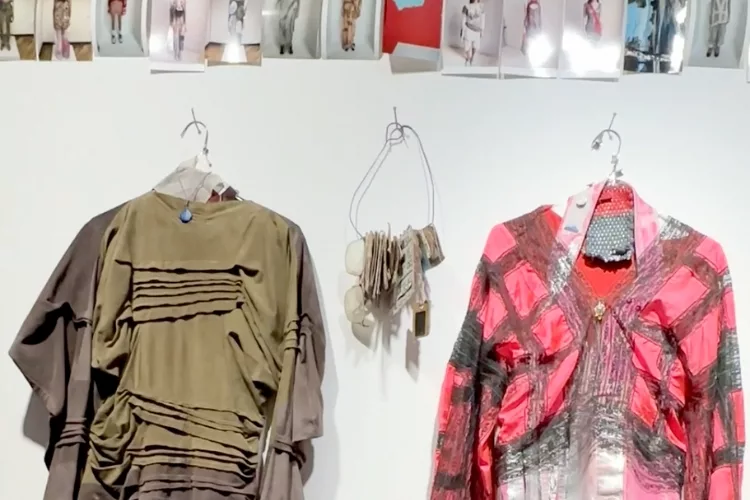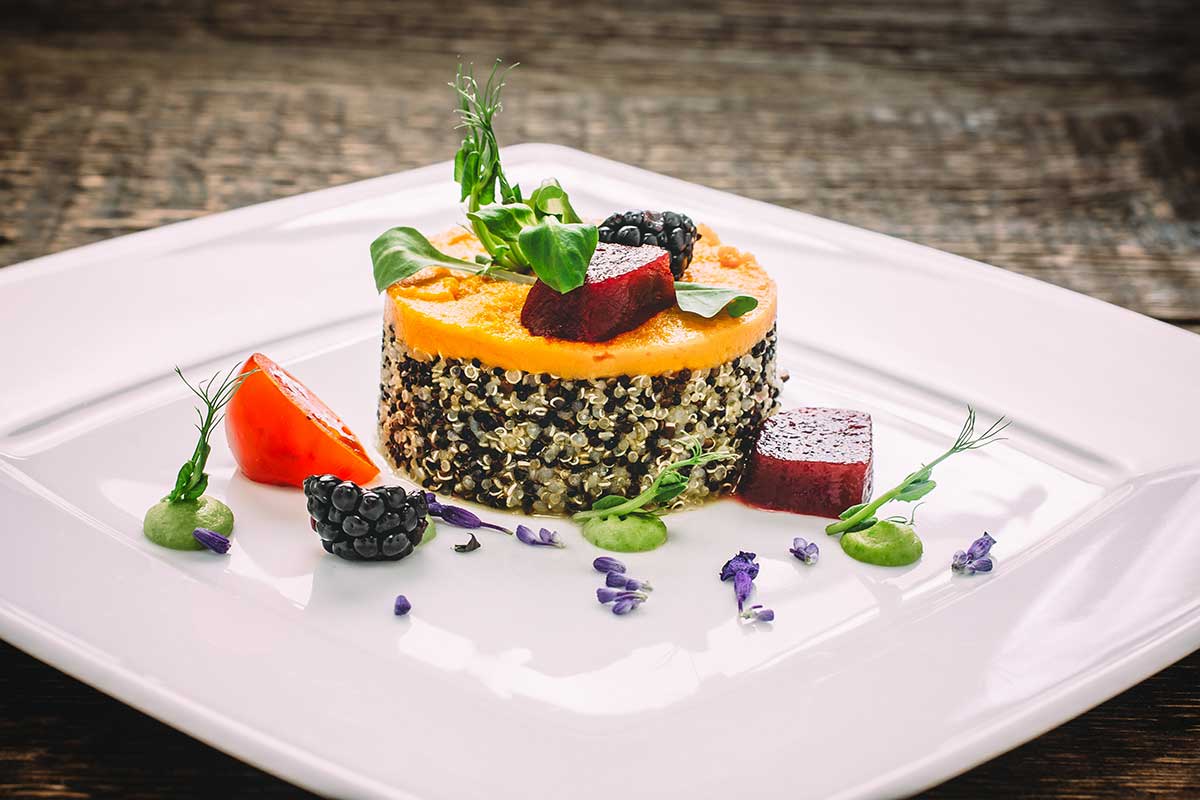
All products featured on No Kill Mag are independently selected by our writers or editors. However, when you buy something through our retail links, we may earn an affiliate commission.
Vegan + January = VEGANUARY! It sounds like a word kids would make up but it’s actually a thing, and by thing we mean a non-profit based out of the UK. And it’s now a movement. It began in 2014 but by 2022 620,000 people signed up to do Veganuary.

So what does it mean to participate? In a nutshell it’s eating only plant-based food for the month of January. Or put another way: nothing that’s an animal / animal by-product. A balanced vegan diet is made up of these four food groups: 1) legumes, nuts, and seeds; 2) grains; 3) vegetables; and 4) fruits. –and the Veganuary site has a lot of great recipes to help you go vegan and a free ‘celebrity’ cookbook as well. It features recipes by some of our favorite people including Jane Goodall and Serena Williams. Long gone are the days when being vegan translated into “deprivation”. There are even vegan restaurants with Michelin star ratings – including Eleven Madison in New York that re-opened as vegan post pandemic.
How do you get enough protein on a vegan diet?
It can take more planning to go vegan than to eat an animal based diet. But beans, lentils and grains like quinoa have protein. Think of lentil soups, black bean chili or a quinoa salad. And unlike previous years there are now hearty meat substitutes like Beyond Burger with 20g of plant-based protein and no GMOs, soy, or gluten.
“The animals of the world exist for their own reasons. They were not made for humans any more than blacks were made for whites, or women for men.”
— Alice Walker
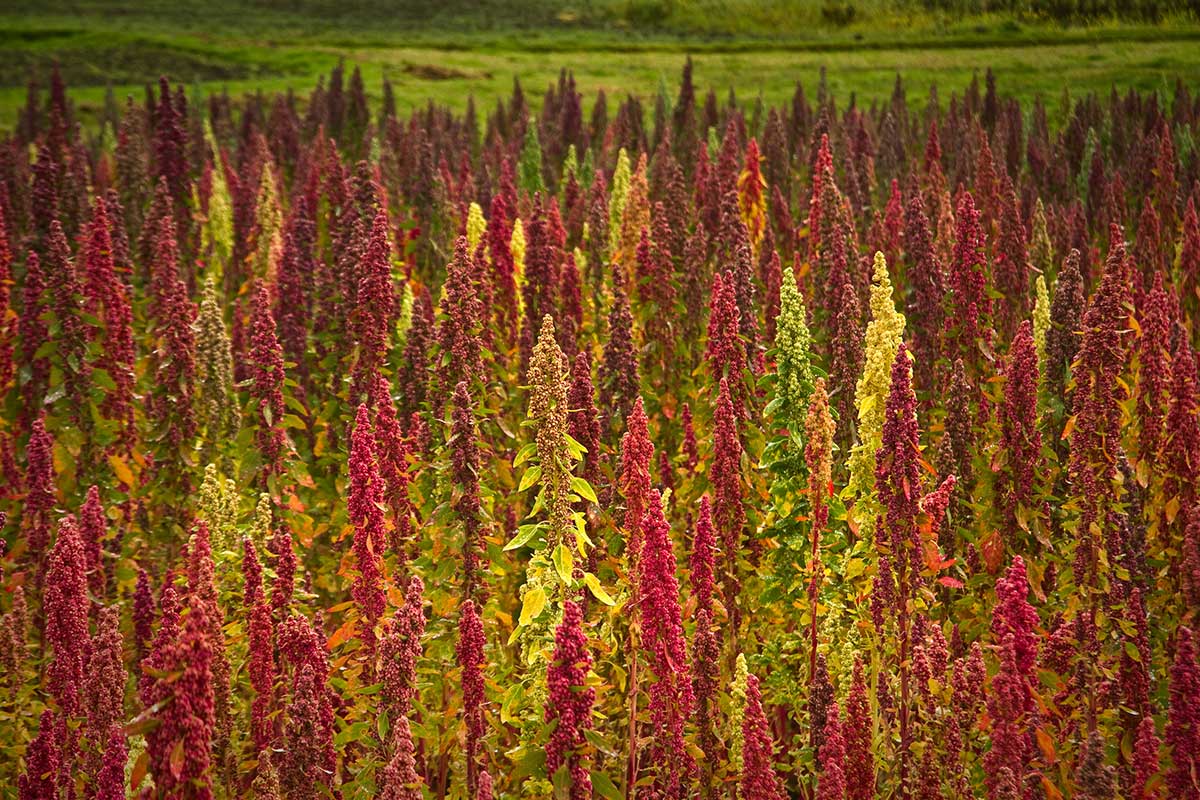
3 reasons to consider going vegan
1. Eating plant-based foods can end world hunger. There would be more than enough food for the expected 9 billion humans on this planet by 2050 if the 40 percent of crops produced today for feeding animals were used directly for human consumption.
2. Eating plant-based food helps combat global warming. Globally, animal agriculture is responsible for more greenhouse gases than all the world’s transportation systems combined. According to the United Nations, a global shift toward a vegan diet is necessary to combat the worst effects of climate change.
3. Vegans live longer. For real. This may be because with their cholesterol-free diet they’re less at risk for heart disease, the number one leading cause of death in the US. They’re also less likely to suffer from diabetes or obesity.
5 Books to Learn more about going Vegan
Animal Liberation: The Definitive Classic of the Animal Movement by Peter Singer
Since its original publication in 1975, this groundbreaking work has awakened millions of people to the existence of “speciesism”—our systematic disregard of nonhuman animals—inspiring a worldwide movement to transform our attitudes to animals and eliminate the cruelty we inflict on them.
In this newly revised and expanded edition, Peter Singer exposes the chilling realities of today’s “factory farms” and product-testing procedures-offering sound, humane solutions to what has become a profound environmental and social as well as moral issue.
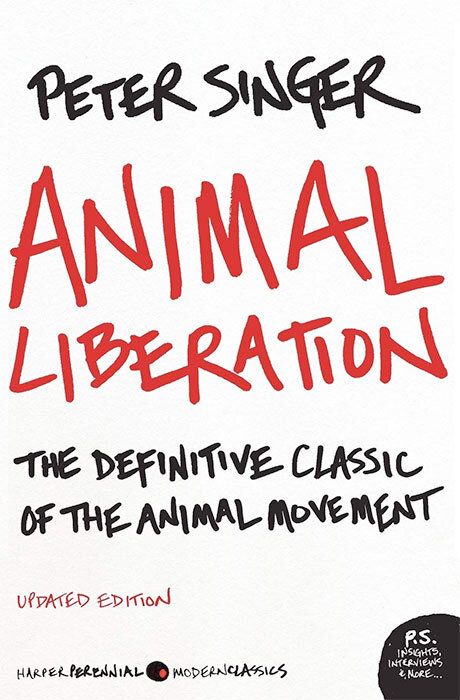
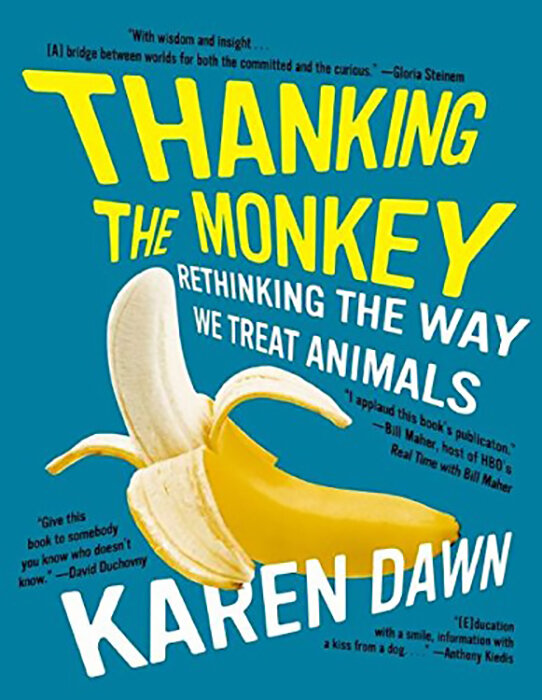
Thanking the Monkey : Rethinking the Way We Treat Animals by Karen Dawn
The animal rights movement has reached a tipping point. No longer a fringe extremist cause, it has become a social concern that leading members of society endorse and young people embrace.
Don’t you want to be part of the conversation? In Thanking the Monkey, Karen Dawn covers pets, fur, fashion, food, animal testing, activism, and more. But as the title playfully suggests, this isn’t like any previous animal rights book. Thanking the Monkey is light on lectures meant to make you feel guilty if you’re not yet a leather-eschewing vegan. It lets you have fun as you learn why so many of your favorite actors and musicians won’t eat or wear animals. And you’ll laugh over scores of cartoons by Dan Piraro’sBizzaro and other animal-friendly comics.
This fun primer for a smart and socially committed generation delivers some serious surprises in the form of facts and figures about the treatment of animals. Yes, it will shock you with tales of primates still used in animal testing on nicotine or killed for oven cleaner. But it will also let you lighten up and laugh a little as we work out how to do a better job of thanking the monkey.
The Reducetarian Solution: How the Surprisingly Simple Act of Reducing the Amount of Meat in Your Diet Can Transform Your Health and the Planet by Brian Kateman
Brian Kateman coined the term Reducetarian–a person who is deliberately reducing his or her consumption of meat–and a global movement was born. In this book, Kateman, the founder of the Reducetarian Foundation, presents more than 70 original essays from influential thinkers on how the simple act of cutting 10% or more of the meat from one’s diet can transform the life of the reader, animals, and the planet. This book features contributions from such luminaries as Seth Godin, Joel Fuhrman, Victoria Moran, Jeffrey Sachs, Bill McKibben, Naomi Oreskes, Peter Singer, and others. With over 40 vegan, vegetarian, and less meat recipes from bestselling cookbook author Pat Crocker, as well as tons of practical tips for reducing the meat in your diet (for example, skip eating meat with dinner if you ate it with lunch; replace your favorite egg omelet with a tofu scramble; choose a veggie burrito instead of a beef burrito; declare a meatless day of the week), The Reducetarian Solution is a life–not to mention planet –saving book.
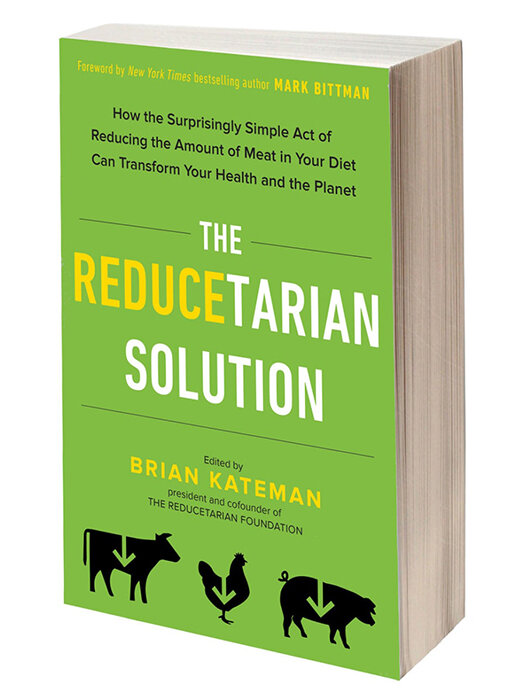
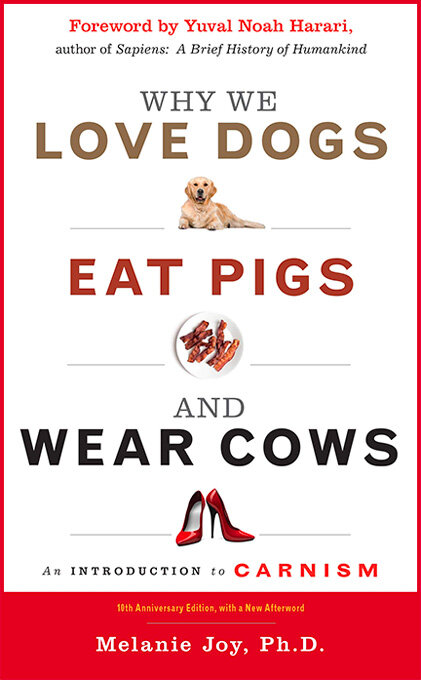
Why We Love Dogs, Eat Pigs, and Wear Cows by Melanie Joy
Why We Love Dogs, Eat Pigs, and Wear Cows offers an absorbing look at what social psychologist Melanie Joy calls carnism, the belief system that conditions us to eat certain animals when we would never dream of eating others. Carnism causes extensive animal suffering and global injustice, and it drives us to act against our own interests and the interests of others without fully realizing what we are doing. Becoming aware of what carnism is and how it functions is vital to personal empowerment and social transformation, as it enables us to make our food choices more freely–because without awareness, there is no free choice.
The Omd Plan: Swap One Meal a Day to Save Your Health and Save the Planet by Suzy Amis Cameron
The research is clear. Plant-based eating is the healthiest diet on Earth. And it just so happens that what’s healthy for our bodies is also healthy for the planet. In The OMD Plan, Suzy explains how we can boost energy, feel better, live healthier, and heal the Earth — starting with at least one plant-based meal a day. In the The OMD Plan you’ll discover…
Plant-based guidance for everyone
Along with over 50 recipes, Suzy shares her field-tested shopping lists, meal plans, and kitchen tips in The OMD Plan, providing an all-in-one resource for anyone who wants to improve their health and take care of our beautiful planet at the same time.
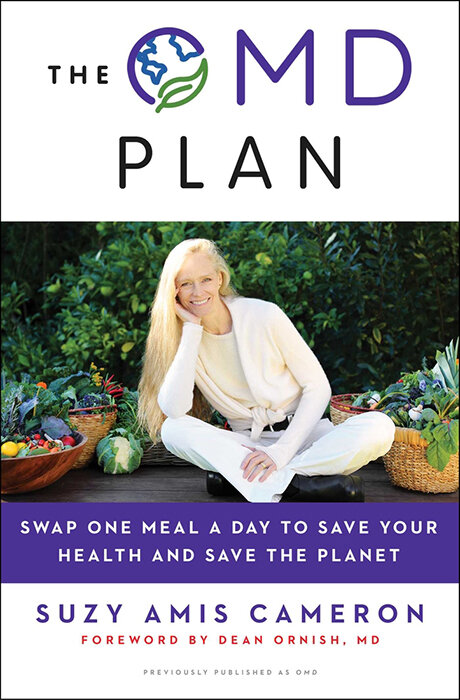
We hope this has helped you decide whether or not to try going vegan. And if it’s too big of a commitment for you, maybe try eating vegan one or two days a week!
Related Articles
Culture Dose: This week we’re all about (not) eating animals
Dry January: Four reasons to try it and one reason not to
Five Ideas for Self Care When Everything Feels Like Too Much
Queer Brown Vegan –An interview with our favorite intersectional, environmental educator
